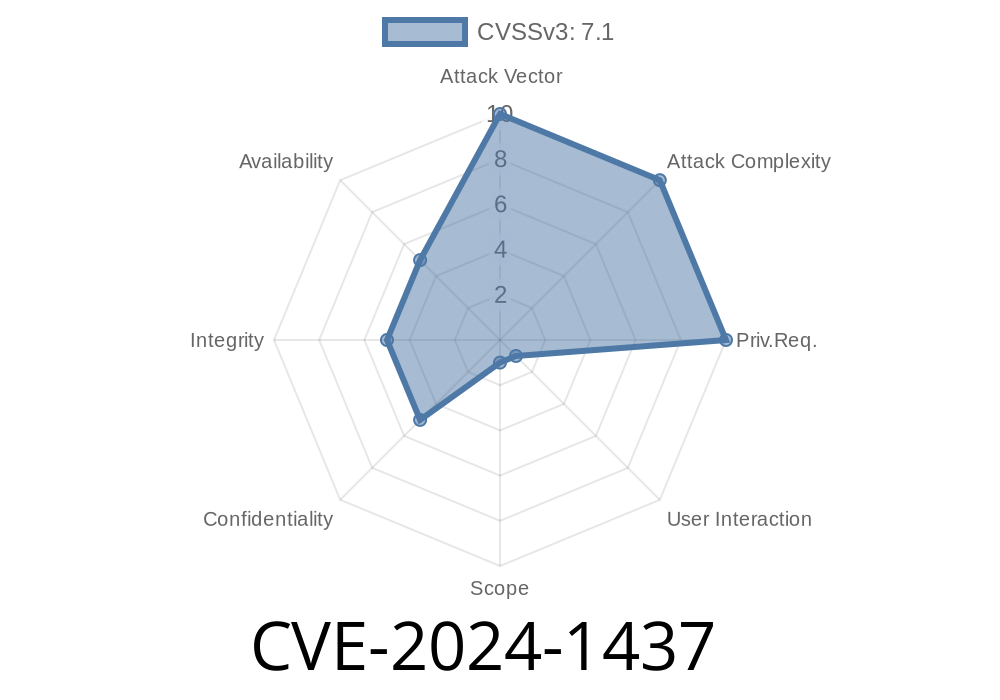June 2024—A fresh vulnerability has shaken the WordPress world. CVE-2024-1437 is an Improper Neutralization of Input During Web Page Generation, better known as a Reflected Cross-site Scripting (XSS) issue, in the popular Adsmonetizer plugin by José Fernandez. If you rely on this plugin, this is a must-read for you.
Vulnerability type: Reflected Cross-site Scripting (XSS) – CWE-79
- CVE link: NVD - CVE-2024-1437
- Affected product page: WordPress.org: Adsmonetizer
The problem boils down to improper sanitization of user-supplied inputs when generating web pages—meaning a crafted URL could trick Adsmonetizer into running malicious JavaScript in the browser of your site’s visitors.
Imagine a URL like this
https://victimsite.com/?adsmonetizer_param=%3Cscript%3Ealert('hacked')%3C/script%3E
If the Adsmonetizer plugin echoes back the adsmonetizer_param parameter to your page without sanitizing it, a malicious actor can inject scripts directly into the site that run in your visitors’ browsers.
Here’s a simplified PHP example showing how such vulnerabilities commonly appear in plugins
// INSECURE: Echoes user input directly to the page
echo $_GET['adsmonetizer_param'];
If a user accesses
https://your-site.com/?adsmonetizer_param=<script>alert('XSS!')</script>;
Secure alternative:
// SECURE: Escapes special HTML characters
echo htmlspecialchars($_GET['adsmonetizer_param'], ENT_QUOTES, 'UTF-8');
Why is this bad?
- The attacker can steal cookies, deface pages, redirect users, or perform actions as the logged-in user.
`
https://victimsite.com/?adsmonetizer_param=
Convince a logged-in admin or user to click the link (phishing, comment spam, etc.).
4. If the vulnerable code reflects the parameter unsanitized, the attacker’s code runs with the rights of the session.
You are at risk if you use Adsmonetizer versions 3.1.2 and below.
- Test your site by visiting https://your-site.com/?adsmonetizer_param=<script>alert('XSS!')</script>;, but be careful! Only do this on staging/dev environments.
Update Immediately:
If a new, patched version exists on Adsmonetizer’s WordPress plugin page, update now.
Disable the plugin until an update is released.
- Apply a Web Application Firewall (WAF) such as Wordfence or Sucuri to block malicious requests.
References and Further Reading
- NVD: CVE-2024-1437
- WPScan Vulnerability Database: Adsmonetizer XSS
- OWASP XSS Cheat Sheet
- How to secure your WordPress site
TL;DR
CVE-2024-1437 in Adsmonetizer lets attackers inject scripts into your WordPress site via unsanitized parameters. Update the plugin now, or disable it if no patch exists!
Timeline
Published on: 02/29/2024 06:15:46 UTC
Last modified on: 02/29/2024 13:49:29 UTC
